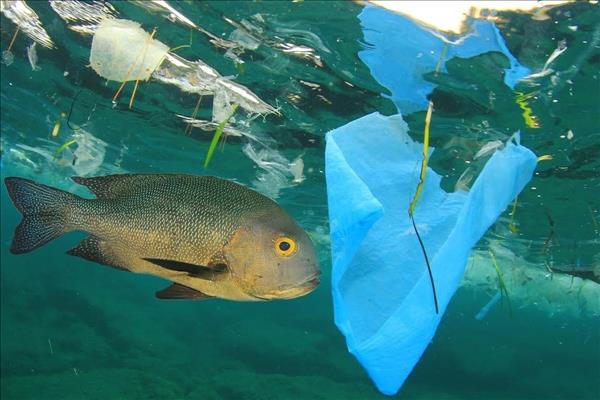
Alarm after Discovery of Plastic Fish!
After a study carried out recently by Nefertiti Sibaja, a student of biological sciences of the National University of Costa Rica (UNA), serious remains of plastic waste were found in the fish of our coast. It is a circumstance that, once again, ignites the alarms of the authorities.
Prior to this research, UNA has been emphatic in developing a series of activities and research where a large amount of micro-plastic has been found in various fish species. The most alarming of this type of research is that many of these contaminated species were found in the Las Baulas Marine Park in Guanacaste, despite it is a 100% protected area.
Dealing with the harsh reality
Various
studies around this case reveal a red-hot reality that we are currently
experiencing. The study is exhaustive and therefore yields reliable figures in
almost its entirety. In this particular case, the same study showed that of a
sample of almost 300 fish, only 1 did not present the harmful micro-plastic in
its organic composition.
Everywhere…
This
element, that is to say the micro-plastic, we have found throughout his body,
nostrils, stomach, eyes, digestive tracts among other parts. It is worth
mentioning that this material is so tiny that it can pass through the
bloodstream of the fish, which causes it to accumulate more easily in organs
such as the liver and intestines.
These same investigations reveal that this micro-plastic comes from at least 3 main elements, on the one hand, are toothpaste, laundry soaps and also the fibers of synthetic clothing. This material can also come from plastic, always as plastic bottles or other plastic materials.

This material is released from them and most of these products become garbage that runs freely through pipes, rivers, and lakes to empty into the ocean greatly harming the life of many and, therefore, also the health of humanity.
More in figures
According
to official figures, our territory generates 570 tons of garbage, of which a
little more than half inevitably goes to the sea. In this particular case of
our affected rivers, the Tempisque and Tarcoles rivers stand out to a great
extent, which are truly the most polluted in our country.
Irreparable damage to health
This
type of situation can cause a big mess in relation to health since consuming
this type of fish can cause cancer to sexual and reproductive problems. The
intake of micro-plastic has already been investigated in the past and has
yielded collateral damage of immeasurable magnitude.
Most
of this type of material with which these types of plastics are finally made
can release toxins and physiological problems, which begin to appear in terms
of fertility, both in men and women.
You
have to start looking for a positive strategy where you avoid, at all costs,
that a large part of the garbage generated within the country ends up in the
sea. For this, it is necessary to undertake new practices such as recycling,
learn to select the different types of garbage and, finally ,avoid throwing
garbage irresponsibly on the streets, especially when you are touring a new
site that maybe you do not know.
Are we still in time to save ourselves and
the planet?
It
is propitious to highlight the importance that, in the midst of investigations
like this, the same citizen has. But also, on the other hand, the leading
authorities. That is, in this case, the one that the competent authorities
have.
Another important aspect is to consolidate an action plan that allows not only the ordinary citizen but also the tourist to give him the respect and the value that the sea possesses, not only as a tourist place, but also as an ideal place to safeguard the biodiversity that undoubtedly lives within it.
Another important plan is to avoid the consumption of this type of fish. But, today, it is 100% necessary to go beyond to avoid consuming a dish for protection. It is time to join efforts to follow closely what Costa Rica points out in its development plan.
This same document states that it is necessary to join efforts to make a timely and quality management when protecting marine diversity. The letter also subscribes that Costa Rica has come a bit disorganized with the programming of laws and statutes that regulate and coordinate marine spaces.


Legal Disclaimer:
MENAFN provides the
information “as is” without warranty of any kind. We do not accept
any responsibility or liability for the accuracy, content, images,
videos, licenses, completeness, legality, or reliability of the information
contained in this article. If you have any complaints or copyright
issues related to this article, kindly contact the provider above.

















Comments
No comment